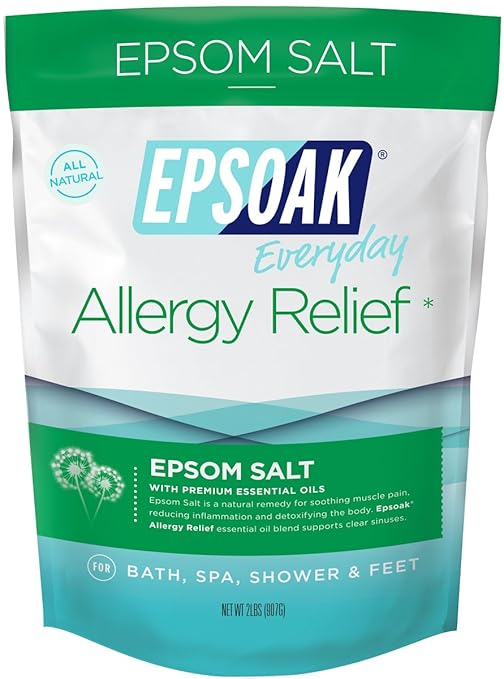
Natural allergy remedies offer a promising path toward alleviating allergy symptoms without relying on conventional medications. This in-depth guide delves into various natural approaches to managing allergies, from dietary adjustments to herbal remedies and lifestyle modifications. Allergies can significantly impact daily life, triggering uncomfortable symptoms like sneezing, runny noses, itchy eyes, and skin rashes. This article will explore a range of natural allergy remedies, demonstrating their potential to reduce reliance on pharmaceutical treatments and address underlying allergy triggers. We will explore dietary changes, the use of herbs, and lifestyle adaptations, providing concrete examples and supporting data where possible. This article is structured to provide a comprehensive overview of natural allergy remedies, guiding you toward managing your allergies effectively. We’ll cover dietary modifications, exploring specific foods known for potential allergy-reducing effects, delve into the world of herbal supplements and their potential benefits, and finally examine lifestyle changes that can contribute to allergy relief.
Dietary Changes for Allergy Relief
Identifying Allergens Through Diet
Many individuals experience allergies triggered by specific foods. A crucial first step is identifying potential food allergens. Keeping a detailed food diary can help pinpoint foods that consistently lead to allergic reactions. For instance, common culprits include dairy, wheat, soy, nuts, eggs, and certain fruits and vegetables. Removing these foods from your diet for a period can often significantly reduce symptoms. Also, consider introducing foods known to have anti-inflammatory properties, such as ginger, turmeric, and foods rich in vitamin C. By observing the effects on your allergy symptoms, you can better understand your personal triggers.
Anti-inflammatory Foods
Consuming foods rich in anti-inflammatory compounds can be beneficial for managing allergies. Anti-inflammatory foods can help reduce the body’s immune response to allergens. Studies have shown a correlation between a diet rich in fruits, vegetables, and omega-3 fatty acids and a reduced incidence of allergic reactions. These dietary elements can help minimize inflammation within the body, reducing allergy symptoms. Examples of these anti-inflammatory foods include leafy green vegetables, berries, fatty fish, and olive oil. Consider incorporating these foods into your daily meals to reap potential allergy-reducing benefits.
Herbal Supplements for Allergy Management
Related Post : are allergies autoimmune
Natural Antihistamines
Numerous herbal supplements claim to offer natural antihistamine properties, potentially reducing allergy symptoms. Some herbs often touted for their anti-allergic effects include chamomile, stinging nettles, and ginger. However, it’s essential to note that the scientific evidence supporting these claims is often limited, and results may vary from person to person. It is always advisable to consult a healthcare professional before incorporating any new herbal remedies into your treatment plan, especially if you have pre-existing conditions or are taking other medications.
Adaptogens and Immunity Boosters
Certain herbs are categorized as adaptogens, meaning they may help the body adapt to stress and support overall immune function. In the context of allergies, these herbs may aid in modulating the immune response, potentially reducing allergic reactions. Some examples of adaptogenic herbs include ginseng, licorice root, and astragalus. These herbs can also bolster the immune system, which may play a role in reducing allergic reactions. Research into the effectiveness of these herbs in managing allergies is ongoing, but these remedies could potentially be part of a comprehensive allergy management plan.
Lifestyle Modifications for Allergy Relief
Identifying and Avoiding Triggers
A critical aspect of managing allergies is pinpointing and avoiding triggers. If you suspect an environmental trigger, carefully examine your surroundings. For instance, mold, dust mites, pollen, or pet dander can all be allergy culprits. Maintaining a clean and dust-free home, using air purifiers, or taking precautions against pollen exposure can significantly reduce allergy symptoms. By pinpointing triggers and reducing exposure, individuals can proactively manage their allergies.
Stress Management
Stress can exacerbate allergic reactions. Implementing stress-management techniques can be a beneficial aspect of your comprehensive allergy management plan. Techniques such as meditation, yoga, or deep breathing exercises can help regulate stress levels, potentially lessening the impact of allergy symptoms. Stress reduction techniques can also indirectly support the immune system’s response to allergens.
Alternative Therapies for Allergy Relief
Acupuncture and Traditional Chinese Medicine (TCM)
Acupuncture and Traditional Chinese Medicine (TCM) are alternative approaches that aim to restore balance and harmony within the body. Acupuncture, using needles placed at specific points on the body, is believed to stimulate energy flow and reduce inflammation, which could benefit those with allergies. TCM may integrate herbal treatments, dietary recommendations, and lifestyle changes as part of a holistic approach to managing allergies.
Homeopathy
Homeopathy, another complementary therapy, involves using highly diluted substances believed to stimulate the body’s own healing response. Some people find homeopathy helpful in managing allergic symptoms, although its efficacy is a subject of ongoing scientific debate. The potential benefits of homeopathy should be considered in conjunction with conventional medical treatments, and further research is necessary to validate its role in allergy management.
Conclusion
In conclusion, exploring natural allergy remedies offers a promising pathway to alleviate allergy symptoms and improve overall well-being. This article has highlighted several effective natural allergy remedies, from dietary changes and herbal supplements to lifestyle adjustments and alternative therapies. Remember, consulting with a healthcare professional is crucial before starting any new treatment regimen, especially if you have underlying health conditions. For personalized guidance and to delve deeper into specific natural remedies, consider consulting a naturopathic doctor or registered dietitian specializing in allergy management. Take control of your allergy experience by incorporating these natural solutions into your daily routine.